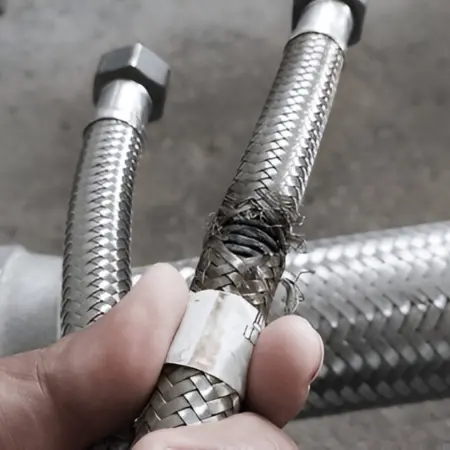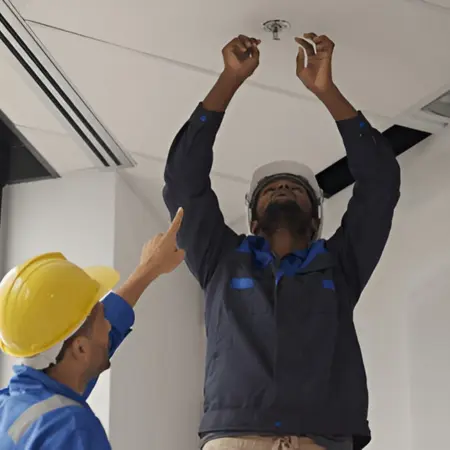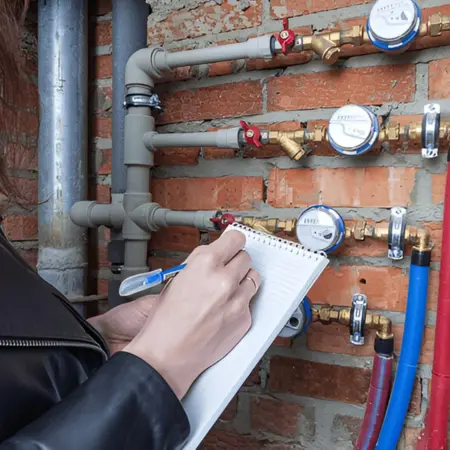Summer is here, making it a great time to check your plumbing!
Warm weather means you want everything to work well and avoid surprises.
These summer plumbing tips will help you keep your home safe and comfortable.
Key Takeaways
- Warm weather can create special challenges, so it’s important to be ready.
- When picking new hoses, choose ones that are sturdy and designed for summer.
- Clogged gutters can cause major water damage to your home.
- Tree roots can enter your plumbing system, leading to clogs and damage.
- Adjust your water heater to a comfortable temperature, around 120°F (49°C) if possible.
- Put in low-flow faucets and showerheads to conserve water.
- If you have plumbing problems this summer, it’s best to call a professional.
7 Summer Plumbing Tips Every Homeowner Should Know
Summer is a great time to check your home’s plumbing.
Warm weather can bring unique challenges, so it’s important to stay prepared.
Here are seven easy plumbing tips to keep everything running smoothly.
1. Check Your Hoses (Pipes) And Faucets
Start by checking your garden hoses and outdoor faucets for leaks.
Look for wet spots, dripping water, and any signs of moisture.
If you find a leak, take immediate action by tightening connections or using a plumber’s tape.
Consider replacing the faucet and hose if the leak is huge.
Replace Old Hoses
It’s important to replace any damaged hoses.
Worn hoses can burst and cause water damage.
When choosing new hoses, look for ones that are durable and meant for summer use.
These should be able to fight heat and UV rays.

2. Clear Out Gutters And Downspouts
Clogged gutters can lead to serious water damage to your home.
When rainwater can’t flow properly, it can overflow and cause leaks in your roof and basement.
Here’s how to clean them properly:
To clean your gutters, start by removing debris with a scoop or your hands.
Then, flush them out with a hose to ensure they’re clear.
Don’t forget to check the downspouts and remove any blockages.
Install Gutter Guards
Gutter guards can help prevent debris buildup.
They act as a barrier, allowing water to flow through while keeping leaves and stems out.
3. Prepare Your Sprinkler System
Check your sprinkler system for broken heads and leaks.
Turn on the system and watch for any areas that don’t water properly or puddles forming.
Adjust Sprinkler Timers
Set your timers to water in the early morning or late evening.
This helps avoid evaporation during the hottest part of the day.
It ensures your plants get the most water while saving resources.

4. Watch For Tree Root Intrusions (Entrance)
Tree roots can grow into your plumbing system, causing clogs and damage.
Look for slow drains, gurgling noises, and unexplained wet areas in your yard as signs of trouble.
Prevention Tips
To prevent root intrusion, plant trees at a safe distance from your pipes.
Regularly inspect your plumbing and consider using root barriers if you have large trees nearby.
5. Maintain Your Water Heater
Sediment can build up in your water heater, affecting its efficiency.
To flush it out, turn off the heater, connect a hose to the drain valve, and let the water run until it’s clear.
Adjust Temperature Settings
Set your water heater to a comfortable temperature, ideally around 120°F (49°C).
This helps save energy and prevents burning.
6. Monitor Water Usage
Check your water bill regularly for any unusual increases.
A sudden increase shows a leak somewhere in your plumbing.
Use Water-Saving Fixtures
Install low-flow faucets and showerheads to save water.
These fixtures can reduce your water usage without sacrificing pressure.

7. Be Prepared For Storms
Make sure your sump pump is working properly before the storm season.
Test it by pouring water into the sump pit to see if it activates.
Create A Drainage Plan
Develop a drainage plan to direct water away from your home.
Use landscaping to create slopes around your home.
Make sure downspouts are positioned to direct water away from the foundation.
When To Call A Pro
If you have any plumbing issues this summer, it’s a good idea to call a professional.
They have the experience and tools to fix problems quickly and safely.
Getting help early can save you time and money in the long run.
Don’t hesitate to reach out for expert advice and repairs.
Contact us at OP Plumbing Hub for expert services.
Conclusion
This article talks about summer plumbing tips every homeowner should know.
Following these summer plumbing tips can keep your home safe and dry.
Regular checks and simple actions will help prevent big problems and save money. Contact us at OP Plumbing Hub for expert advice and help.
